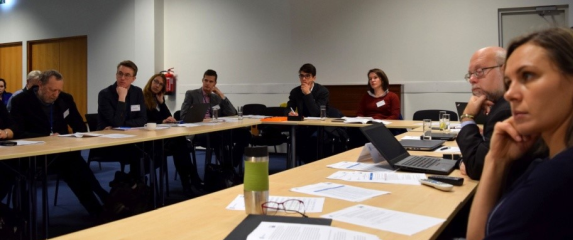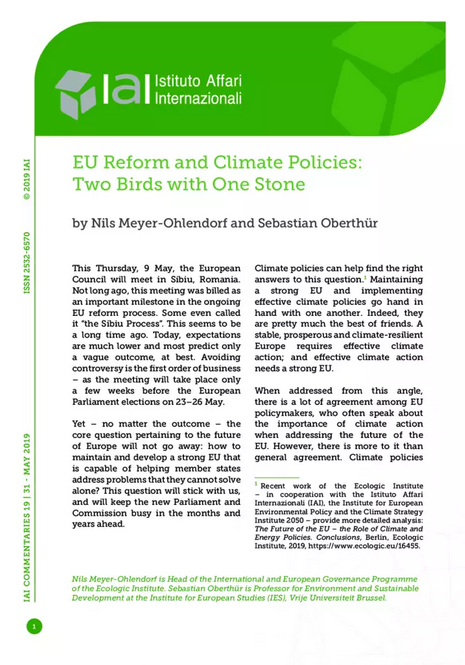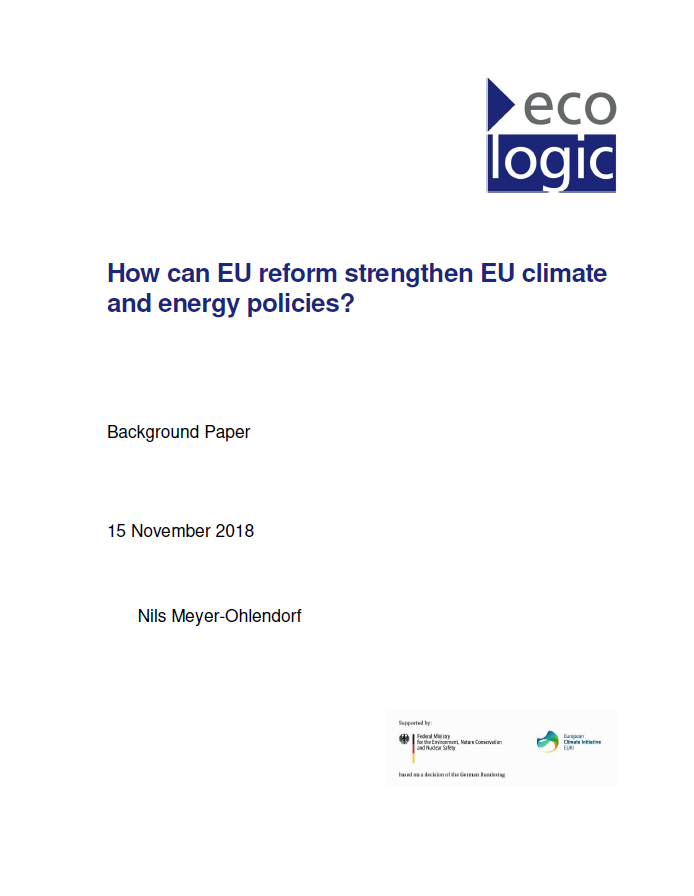Climate Policies as the New Trade Mark of the EU
The project has been completed. It put the EU’s energy and climate policy reform process on the agenda for the first time for many stakeholder groups. To do so, the project organised high-level workshops in Tallinn, Sofia, Bucharest and Berlin.
Climate Policy Climate Strategies and Plans Energy Policy

Project info
Bulgaria, Estonia, Germany, Romania
11/17 - 06/19
-
111,516.00 €
Contact info
Nils Meyer-Ohlendorf
- GlobalFocus Center
- Sofia Platform
Context
The extent to which the EU will campaign for international climate action is decided in Brussels. That requires close cooperation between the member states. Discussions on this cooperation and on future EU policy in general are thus taking place across Europe and also have a major impact on energy and climate policy.
Project
The project was designed to make energy and climate policy one of the core topics of the EU’s reform debate. To do so, it held workshops in Tallinn, Sofia and Bucharest to bring together opinion leaders in the EU’s reform and climate policy.
The project pursued an innovative approach by linking debate about the future of the EU with climate action for the first time. It has helped establish discussions between climate policy-makers and those working on EU topics and reforms.
The first workshop was held in Tallinn, Estonia, on 4 December 2017, attended by former ministers and by members of parliament and representatives of embassies, ministries, NGOs and industry associations.
A background paper exploring the links between the EU reform and climate and energy policy provided the framework for the workshops. It also described the latest developments in the EU reform process.
A workshop was held in February 2019 in Berlin to mark the end of the project.

Results
This was the first time that political parties with opposing views in some areas met civil society and private sector actors to discuss the EU reform process. The project has established a unique, ongoing dialogue on climate and energy issues across country borders, something that had not previously happened.
The background paper ‘How Can EU Reform Strengthen EU Climate and Energy Policies’ helped open up the debate to stakeholder groups from across a broad political spectrum, as it did not merely focus on a marginal perspective on the process but instead incorporated differing views. It also enabled debate about the EU reform process to reach a wider audience, thus helping to promote greater participation in the reform process.
Last update: July 2024


